Canadians are different from Americans–that much we know. Nicer, calmer, quieter–we’ve heard it all before. Yet the differences were evident more than usual on June 12 when Kathleen Wynne was elected premier of Ontario, Canada’s most populous province where nearly 40 percent of Canadians live and where Canada's most populous city, Toronto, is.
Wynne’s win was a huge moment, but you’d never have known it from the sedate manner with which the Canadian press reported it. Her Liberal party slammed the Conservatives, whose candidate and party leader, Tim Hudak had been expected to sail to victory. But beyond her political coup, Wynne became the first woman premier of Ontario and only the third woman premier of any Canadian province.
Oh and also–she’s an out lesbian.
Yes, that trifecta which would have had Americans jumping up and down–for joy or with outrage–barely raised an eyebrow from our neighbors to the North, even though her win also sent the power divide into a spin and set the stage for a Liberal takeover in the 2015 federal elections. (Canada is a constitutional monarchy and a Commonwealth of England under Queen Elizabeth II. It is also a parliamentary democracy, so Wynne pulled the percentage points out from under the Conservatives, forcing Hudak to decide he must resign as party leader.)
One American who was jumping up and down for joy when Wynne won was actor and LGBT activist, George Takei. He sent out a tweet to his 1.21million followers which read: "The Liberal Party in Ontario, Canada has swept to power, and with it their leader Kathleen Wynne will become the ..." and then over a photo of a triumphant Wynne, arms raised in victory, her wife, Jane Rounthwaite sitting behind her on the dias, Takei had written: "the first gay person to ever be elected as Head of Government anywhere in the Commonwealth or the English-speaking world."
More than 1,600 people favorited and retweeted Takei–more than had liked the main news story on Wynne in Canada.
For her part, Wynne also took the victory in stride, saying she was proud to be the first woman elected as premier of Ontario, but also saluting Ontario for accepting both her femaleness and her lesbianism as irrelevant to her capabilities as a stateswoman.
"This is a beautiful, inclusive place that we live in, Ontario, and I want us every single day to treasure that," Wynne said. "I want our kids to feel that as they grow up in our schools and understand what a gift it is to live in a place like this where anyone can be the premier. It doesn’t matter. Anyone can be the premier. So that thing I said in my leadership about how Ontarians do not hold prejudice in their hearts, that Ontarians want to be an open and inclusive people, we have so proven that tonight."
While Canada was looking very post-gay and post-feminist, on this side of the border–not so much.
Women in power–even a lesbian in power–might only elicit a shrug and a clink of the Molson’s in Canada, but in the U.S. even the idea of women in leadership roles brings sexism to the fore.
Enter Hillary Clinton.
Hillary has always been a lightning rod for criticism, probably because there is no other woman in American politics like her. She’s been First Lady of Arkansas, First Lady of the U.S., twice elected in landslide victories as senator of New York, then appointed Secretary of State. She won the popular vote in the highly competitive 2008 Democratic primary, carrying 48.04% of the vote to Barack Obama’s 47.31%, leaving the party’s nomination to be decided by super delegate votes, creating divisions within the Democratic Party. In fact, the percentages and the nearly half-million votes by which Hillary won the popular Democratic vote were almost exactly the same as the most contested presidential election in U.S. history–George Bush versus Al Gore. Gore also won the popular vote.
Few women who were paying attention in 2008 don’t still harbor some resentment over the way Hillary was treated by the media, pundits and her own political party even as she was winning the primary. It’s hard to forget reading columns about her breasts and her pantsuits, her thighs and her hair–many of them written by women, making the anti-feminist sting that much sharper.
The primary was deconstructed ad nauseam after the election, with the consensus clear: sexism had lost Hillary the nomination.
But that was then, this is now and six years later, with even her critics saying no one in American politics is more qualified to be president in 2016, those lessons were learned, right?
Seems not.
Hillary Clinton’s June 9 ABC interview with Diane Sawyer was like an opening salvo. If Hillary is running for president again, this is what she can expect: harsh, harsher, harshest. The gloves are off, the claws are out–if they were ever put away.
For her part, Hillary tried to keep the Sawyer interview–aired for an hour in prime time on the eve before her new memoir, Hard Choices, about her tenure as Secretary of State launched–light and civil. Sawyer, however, was looking for blood and managed to get a few drops when she hammered Hillary on fees for speaking engagements.
It has long been an American political trajectory that former presidents leave office and divide their time between personal pursuits and speaking engagements. That’s been the case for other former politicos, like Secretaries of State and Secretaries of Defense. So to discover that both Bill and Hillary Clinton are making a lot of money giving speeches is unsurprising. Both also spend most of their time working for The Clinton Foundation.
Sawyer fixated on what Hillary makes per speech–between $100,000 and $200,000. (Sawyer herself makes $12 million and is the highest paid woman in network news.)
What Sawyer didn’t say–nor did Hillary–is that what Hillary gets per speech is commensurate with other politicos out there. What Sawyer also didn’t say is that Bill and Hillary Clinton are the most sought-after politicos in the speech arena. Having only stepped down from her position as Secretary of State in February, Hillary is popular. Her predecessor, Condoleezza Rice, gets between $100,000 and $150,000 per speech, as do former Secretary of State Colin Powell and General David Petraeus. Former Vice President Dick Cheney gets $100,000 per speech as do Al Gore and former presidents Jimmy Carter and George W. Bush. Karl Rove rakes in $75,000 per speech.
That’s the context missing from that part of the interview. So Sawyer comparing the speaking fees of a former Secretary of State and former First Lady to "the average American" was like comparing apples and asteroids. The comparison should have been between other ranked political speech makers.
The only gaffe Hillary made in the entire interview–not for lack of attempts by Sawyer to trip her up–was in her response to the speech fee question. Hillary told Sawyer she and the former president left the White House "in debt" and "broke."
What she didn’t say was how much or why.
The Clintons were $12 million in debt due almost entirely to lawyers’ fees compounded while the Republicans tried to find some crime to pin on one or both of them, including the charge that Hillary may have actually killed Vince Foster, former Deputy White House Counsel who committed suicide in 1993.
These aren’t numbers most of us can imagine–either the speaker’s fees or that level of debt. But context is everything and it’s within the context of Washington money that this falls.
Stunningly even for them, Republicans were quick to call out Hillary for being "too rich" and out of touch with "real people," an extraordinary charge coming from the party that ran Mitt Romney in 2012 whose net worth is a half billion dollars.
While the "we were broke" gaffe died, down a few days later Hillary was in Philadelphia on her book tour and did an interview with NPR’s best-known talk-show host, Terry Gross (who makes a little less than a half million to Sawyer’s $12 million, for contrast. That is still, however, a bit more what Jill Abramson was making as editor of the New York Times).
It wasn’t the best interview. Much of it was boiler plate, but Gross likes to poke and prod–it’s her stock-in-trade–and she did just that with Hillary. While Sawyer was fixated on money, Gross was fixated on gay marriage. When exactly did Hillary decide she was for it?
This line of questioning went on for a full ten minutes of a 45 minute interview.
Awkward.
Gross began, "Obviously you feel very committed to human rights and you obviously put gay rights as part of human rights but in doing the calculus you decided you couldn’t support it [gay marriage]. Correct me if I’m reading it wrong."
When Gross didn’t get the answer she wanted, she repeated her question–in different ways, eliciting this from Hillary: "I have to say, I think you are being very persistent, but you are playing with my words and playing with what is such an important issue."
Gross said she was just trying to clarify how Hillary came to be for gay marriage when she was not during the Clinton Administration.
"No, I don’t think you are trying to clarify," Hillary responded, now clearly testy. "I think you are trying to say that I used to be opposed and now I am in favor and I did it for political reasons. And that’s just flat wrong. So let me just state what I feel like I think you are implying and repudiate it. I have a strong record. I have a great commitment to this issue and I am proud of what I’ve done and the progress were making."
And then finally, this: "I did not grow up even imagining gay marriage, and I don’t believe you did either."
Hillary was right, of course, but that didn’t make her tone in responding to Gross’s line of questioning sound any less problematic. And it landed Hillary back in the headlines for all the wrong reasons.
What no one reported was why she said what she did. In 1992, when Hillary was First Lady, only 14 percent of Americans supported marriage equality. A 2012 survey by the Pew Research Center garnered the following numbers regarding same-sex marriage: 47% favored allowing gay and lesbian couples to marry legally, while 43% were opposed. In 2008, 39% favored and 51% opposed gay marriage, based on an average of polls conducted that year. In 2004, just 31% supported gay marriage, while nearly twice as many (60%) were opposed.
In March of this year the numbers changed again, with a record-high 59 percent saying they support same-sex marriage, while 34 percent are opposed.
If Gross’s intent was to impugn Hillary on marriage equality, the issue obviously has a broader context–was she always for marriage equality? Clearly not. But most Americans weren’t either.
But when Hillary was a guest on "Ellen" in 2008 (Ellen was a huge supporter during the primary), she spoke about civil unions and equality and a lot of things that sounded very much like what we now euphemistically call "evolution" on the issue. In March 2013, Hillary came out publically for same-sex marriage in a promotional fundraising video for HRC a few weeks after she left her position as Secretary of State.
Hillary came out for marriage equality a few months after President Obama, who himself came out for it after Vice President Biden did. But for several years of his presidency Obama had vigorously defended the Defense of Marriage Act (DOMA). So the evolution of the Administration–Obama, Biden (who famously agreed in the 2008 vice-presidential debate that yes, he and Sarah Palin had the same stance on gay marriage) and Hillary–is pretty much the same. The were against it and now they are for it. Like much of the country.
We also know this about Hillary: In December 2011, then-Secretary Clinton gave a half-hour speech on how "gay rights are human rights" in Geneva. It was an extraordinary speech and clarified more than anything Hillary’s stance on LGBT people.
The question isn’t is Hillary flawed—of course she is. All politicians are. But someone like Hillary Clinton who has been in American politics since college and been in the public eye ever since is going to have evolving views on many things unless she’s intellectually and morally static. We change as the times change. The more familiar an idea becomes, the more comfortable we become with it.
I don’t have issues with Hillary’s evolution on marriage equality. I would have had she been president, just as I did with Obama. I expected him to "evolve" sooner and I would have expected her to, as well. And I disagree with Dan Savage’s assessment that Obama was just waiting for the country to "come along" with him on the issue.(13) Obama’s Department of Justice was aggressively prosecuting in favor of DOMA (Defense of Marriage Act) until Obama announced his evolution on the issue–after his Vice President did, forcing his hand.
As Secretary of State, I expected Hillary to do what she did–stand for gay rights as human rights around the globe.
What I do take issue with is whether the 2016 campaign is going to play out the way 2008 did, with non-stop misogyny and sexism which will inevitably impact all women candidates, not just Hillary Clinton, if she decides to run for president.
The U.S. is not Canada. We have ten times as many people and a far more diverse electorate. We are clearly neither as nice nor as evolved. Wynne only discussed her lesbianism once in her entire campaign. That couldn’t and wouldn’t happen here. People got hysterical when Michael Sam kissed his boyfriend on the news. And he’s a football player, not a politician.
Is the plan to smack Hillary Clinton around now, so that all the gaffes are whacked out of her like she’s a political pinata? Or is this just round two of what began in 2008?
America needs to evolve on women in politics. We need to stop holding women to a different and harsher standard. We need to address the substance of all the candidates, irrespective of gender. There is no other potential presidential candidate in the U.S. with the resume, experience and acumen of Hillary Clinton who is not a former or sitting president. So the rules should not be changed just because she’s female.
The Republicans have raised her age as an issue. She’s eight months younger than Mitt Romney–the 2012 Republican candidate. She’s 12 years younger than Sen. John McCain, the 2008 Republican candidate. And she’s only four years older than Jeb Bush, the Republican hopeful with the highest polling numbers. Yet Sen. Mitch McConnell, himself 72, has said if she runs in 2016 it will be like an episode of The Golden Girls–which Hillary pointed out to Sawyer was "a very popular and long-running show."
There are 196 countries in the world and only 21 have female heads of state, the largest of which is Brazil, the fifth most populous nation in the world. The world’s largest democracy, India, had a female head of state, Indira Gandhi, who ruled for nearly 20 years, until she was assassinated.
Women can be president or prime minister or premier. The question for Americans–since Canadians have it sorted already–is whether America is ready to treat women politicians fairly, or will sexism forever rule?
Victoria A. Brownworth is an award-winning journalist, editor and writer and the author and editor of nearly 30 books. She has won the NLGJA and the Society of Professional Journalists awards, the Lambda Literary Award and has been nominated for the Pulitzer Prize. She won the 2013 SPJ Award for Enterprise Reporting. She is a regular contributor to The Advocate and SheWired, a blogger for Huffington Post and a contributing editor for Curve magazine and Lambda Literary Review. Her book, From Where We Sit: Black Writers Write Black Youth won the 2012 Moonbeam Award for cultural&historical fiction. Her novel, Ordinary Mayhem, will be published in fall 2014. @VABVOX












































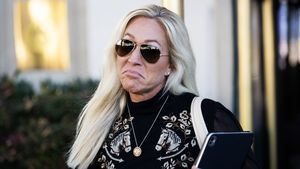
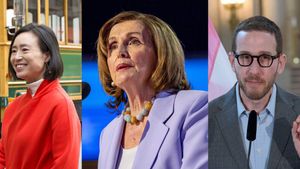
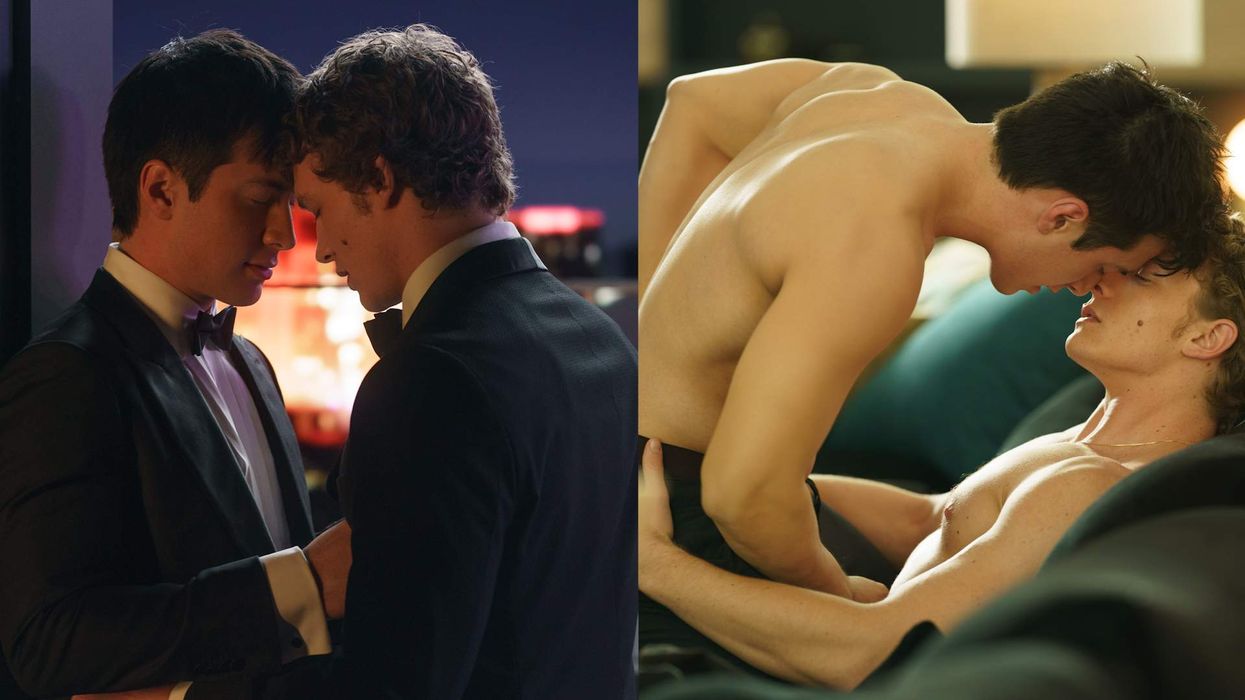
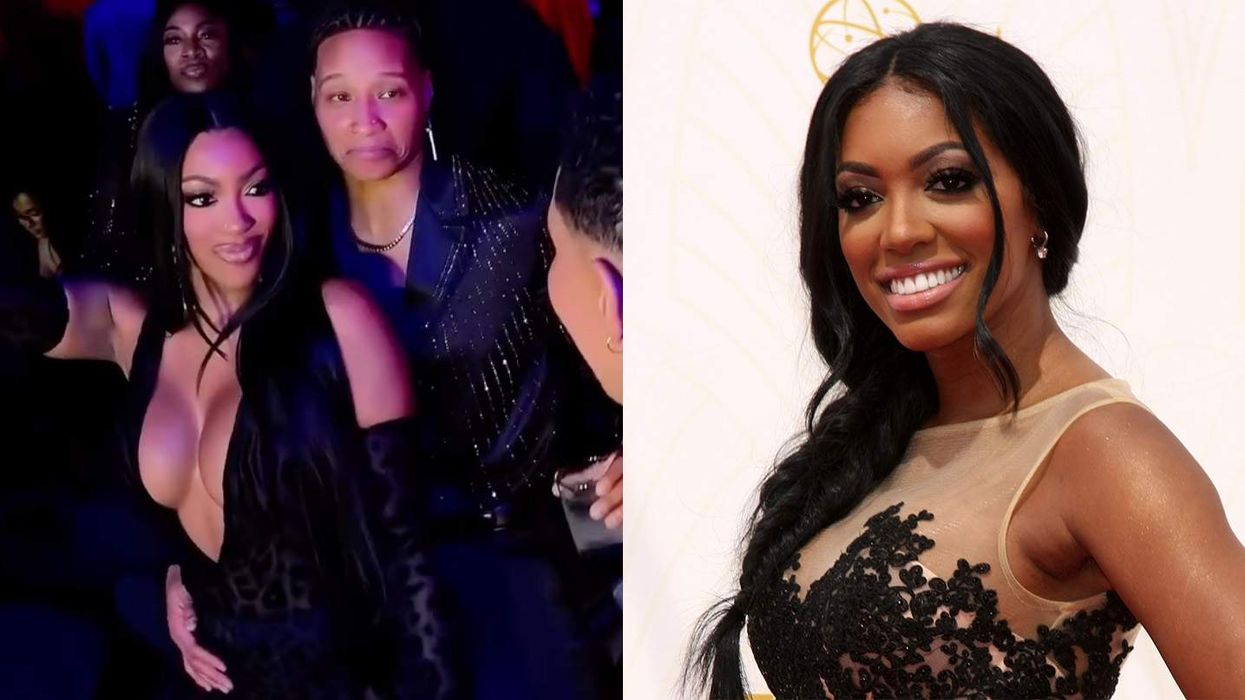

































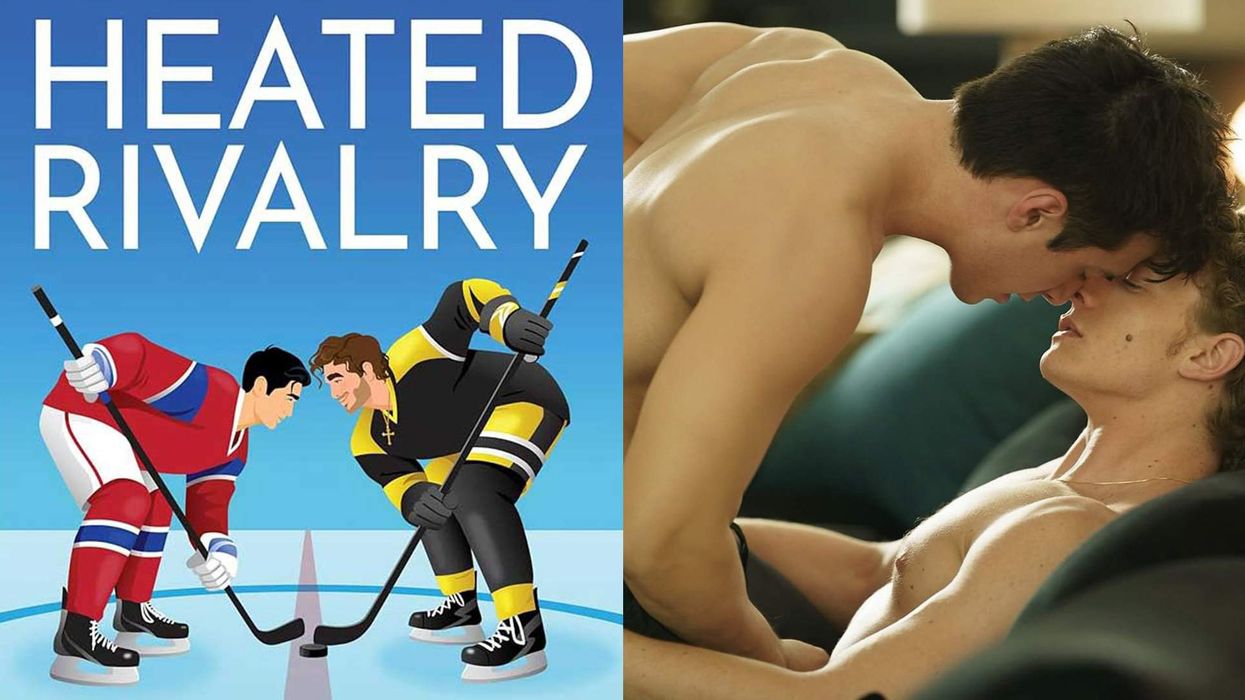
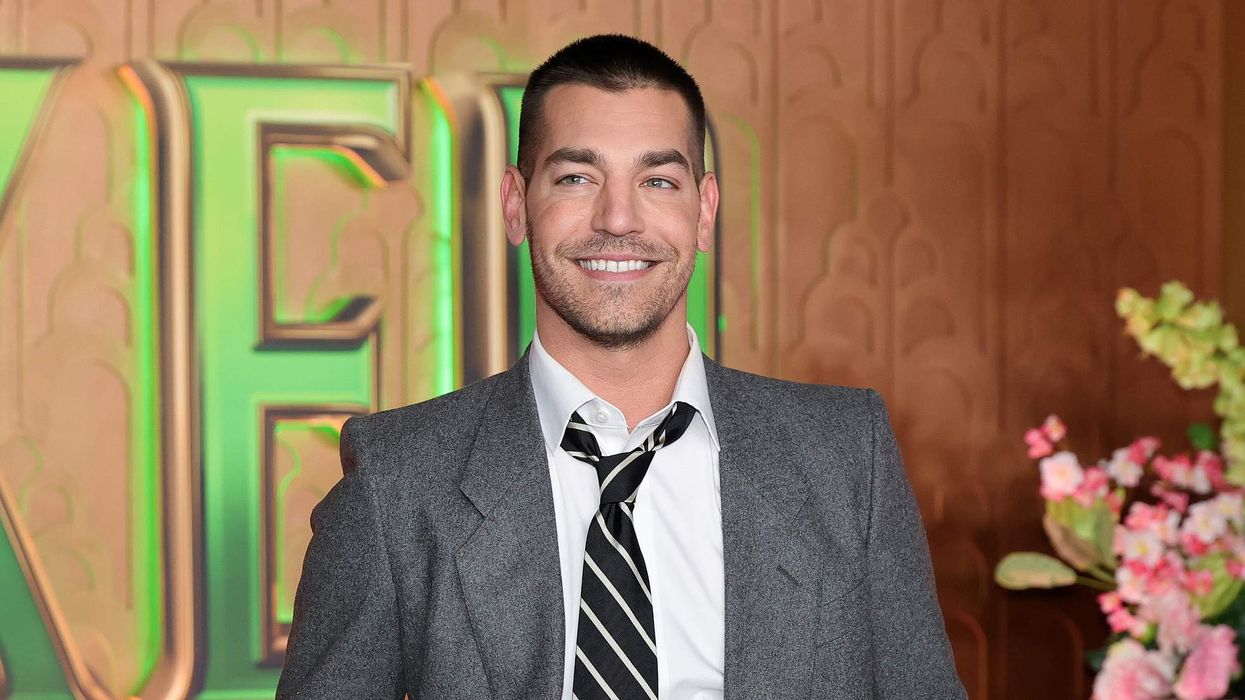
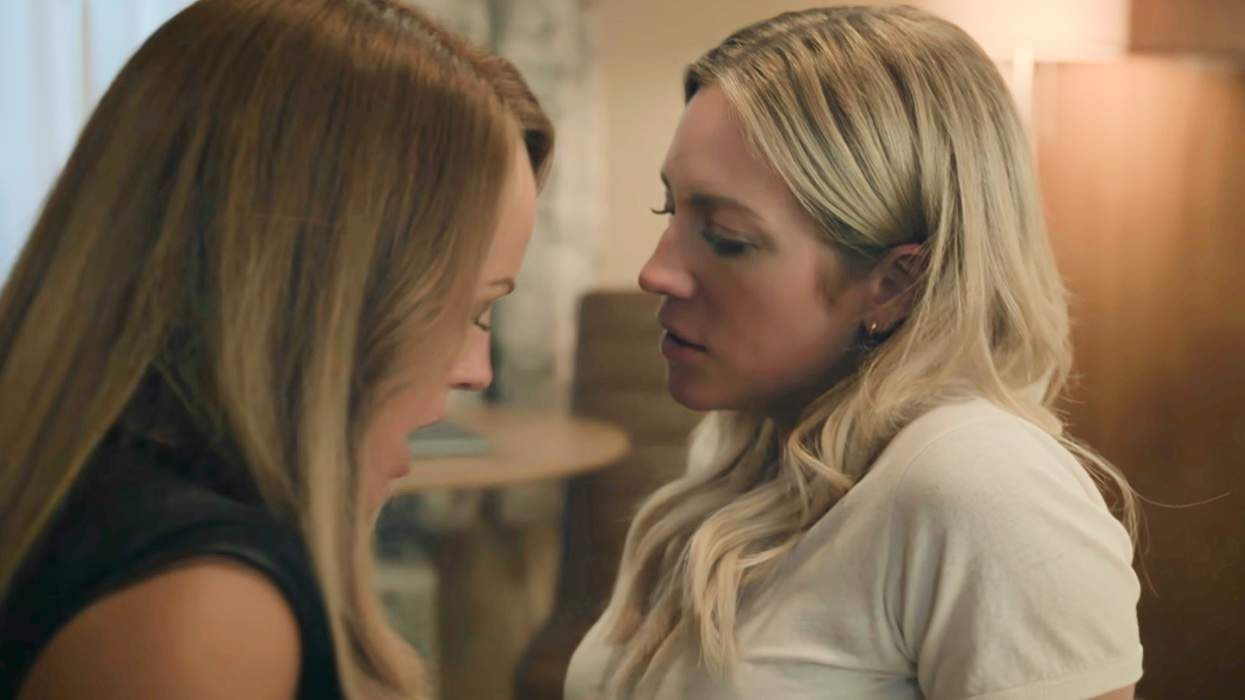



 Cindy Ord/Getty Images
Cindy Ord/Getty Images

























